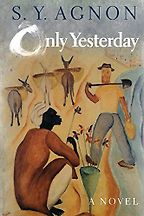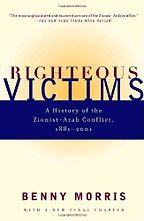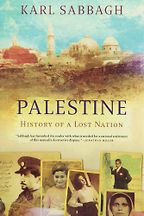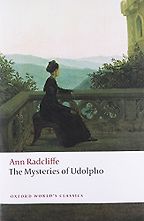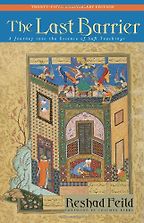Your first book is Only Yesterday by Shmuel Yosef Agnon.
Shmuel Agnon is the only Israeli writer who has won the Nobel Prize for Literature. He is still regarded as the best writer in modern Hebrew literature. This book takes place in Jaffa between the end of the 19th century and the start of the First World War. My latest book, The House of Rajani, takes place at the same time and in the same place so I was very much inspired by his book. I read it three times in order to get the atmosphere and spirit of the place at that time. Nevertheless, when I read Agnon’s book I do have some criticisms of it. This is because I think that when he described the immigration from Eastern Europe to Palestine he disregarded the Palestinian existence. In the entire book, which is about 600 pages, he doesn’t even mention one Arab person by name.
Do you think that was a consciously political choice?
Yes, I think it was a political choice. The way he describes, for example, the first meeting of his protagonists in Palestine. He totally ignores the Palestinian existence in Jaffa back then. The majority of people living there were Palestinian and he only describes the Jewish population. And I think that this was a political choice, which I have tried to remedy in my own book by talking about the Palestinians living there at the time.
Are you the only person who is critical of him? Do others dare, considering how important he is in Jewish literature?
I think I am part of a new trend in Israel to be critical of the way we tell our history. For example there is a group of historians who are called the new historians and Benny Morris is one of them. And what they try to do is to correct the political bias in the writing by talking about Palestinians, and Israelis helping Palestinians.
Benny Morris is actually another of your choices with his book, Righteous Victims: A History of the Zionist-Arab Conflict, 1881-2001.
Benny Morris, together with Ilan Pappe and other historians, is an historian who took it upon himself to check what really happened here in early Zionism. He describes, for example, what happened in 1948. Usually with Israel we tell ourselves that in the 48 War the Palestinians ran away and didn’t want to come back. And he showed that in some cases the situation was quite different. People were expelled or were forced to go and were threatened, and so on. So I chose his book because he gave me the supporting evidence and facts that I needed to describe accurately the situation back then.
What kind of reaction do people have to this version of history?
Well, for example, Ilan Pappe worked at the University of Haifa and was part of this group of new historians, and because of it he didn’t get promotion, was forced to leave Israel and now he works in the UK. So he paid a personal price for trying to retell the mainstream narrative and he now cannot teach in Israel.
And how about when you try to write what you see as the correct version of history?
My last book was under attack as well. It won Israel’s equivalent of the Man Booker Prize in 2009 but, two weeks after I was announced as the winner, the prize was revoked. They found a legal reason to do that – there was talk of a conflict of interests – but I think they did it for political reasons. They saw the book as controversial, attacking the foundation of Israel, questioning our narrative, so they revoked the prize. Israel right now is very patriotic: if you don’t follow the mainstream you are seen as a traitor.
You have also got a book by Karl Sabbagh, Palestine: A Personal History.
I read all these books and many others for research. Since I write historical novels I have to spend about one or two years reading books about that period so I can get the details right. I wanted to read a book written by a Palestinian person about his memories and the way he views the conflict. As a writer I write about people, not about politics. The political may be implied in the book but they are not part of the initial writing. And the thing about Sabbagh was the feelings and emotions he expressed about missing Palestine.
You know, Israel is for me the homeland and it is kind of strange to read a book by a Palestinian who sees the same piece of land as his homeland and has such similar feelings. I could identify with him and that felt awkward. So it was a bittersweet feeling.
Get the weekly Five Books newsletter
When I was writing the book I met descendants of a family who had lived at that time, called the Dajani family. Now they live all over the world. It was kind of emotional as I was born in a hospital named after that family because it was built on land owned by that family. After the 48 War the land was taken from them by the Israeli government. And these people told me about the way they see Palestine – missing it, having been forced to live in other countries and being expelled. Their family history is similar to my personal history because my family grew up in the Jewish quarter of Damascus, Syria and they left the country and moved to Israel. They have a kind of Jewish biography, even though they are Muslims.
The Mysteries of Udolpho, by Ann Radcliffe. This is a gothic novel – so what this has to do with Israel and Palestine?
When I sat down to write my book after all my research, I decided I wanted my book to be gothic, which meant it would involve supernatural events, ghosts, murder in the night – all the motifs of gothic novels.
Not something you would normally identify with that part of the world.
That is exactly what my editor said to me when I told him what I wanted to do. He said, ‘But it’s always sunny there!’ But, Palestine can be gothic because it has many of the remains of old empires, like the Romans and the remains of the Jewish state 2,000 years ago. I also knew that there would be a Muslim boy in my novel whose father would be killed, and I wanted to use the plot of Hamlet. Hamlet is regarded by gothic novelists from the 18th century as the first gothic play, even though it was written centuries before. So I used the plot of Hamlet, and you can find some of the minor characters from Hamlet in my novel.
If you Google gothic you can find the name Ann Radcliffe and this is one of her most famous books. So I summarised it and made a list of the gothic motifs I would like to include in my book, like events taking place at night and a raven.
Your final book is Reshad Feild’s The Last Barrier: A Journey into the Essence of Sufi Teachings. Where does this fit in with the research for your book?
This book is a mixture of the two things I have been talking to you about. On the one hand, Muslim and Palestinian themes, and on the other hand, the mystical aspects of my book. I was very much attracted to the mystical movement in Islam – Sufism. Lots of people in the UK and the States think that Islam is all about fundamentalism so I wanted to show this more mystical side of Islam as well. I read many books about Sufism, and this one is a personal journey of a student with his mentor who guides him into the world of Sufism. The main insight is that to live you have to die, and by dying they mean that you should abandon your ambitions and everything that you want to achieve. This enables you to totally give yourself to the world. And this book is all about the mentor guiding the student to help him to become a Sufi. Although Sufism isn’t that popular in Palestine, I wanted it to be part of my book, because my book is a mystical book with people dying and ghosts and so on. In my book the estate of the Rajani family was blessed by a Sufi teacher, who also gave a prophecy that if the family abandon it then the family itself will disappear, and that is what happens in the book. The land is sold to a Jewish settler and it destroys the family.
March 5, 2010. Updated: October 3, 2023
Five Books aims to keep its book recommendations and interviews up to date. If you are the interviewee and would like to update your choice of books (or even just what you say about them) please email us at [email protected]
Five Books interviews are expensive to produce. If you've enjoyed this interview, please support us by donating a small amount.
